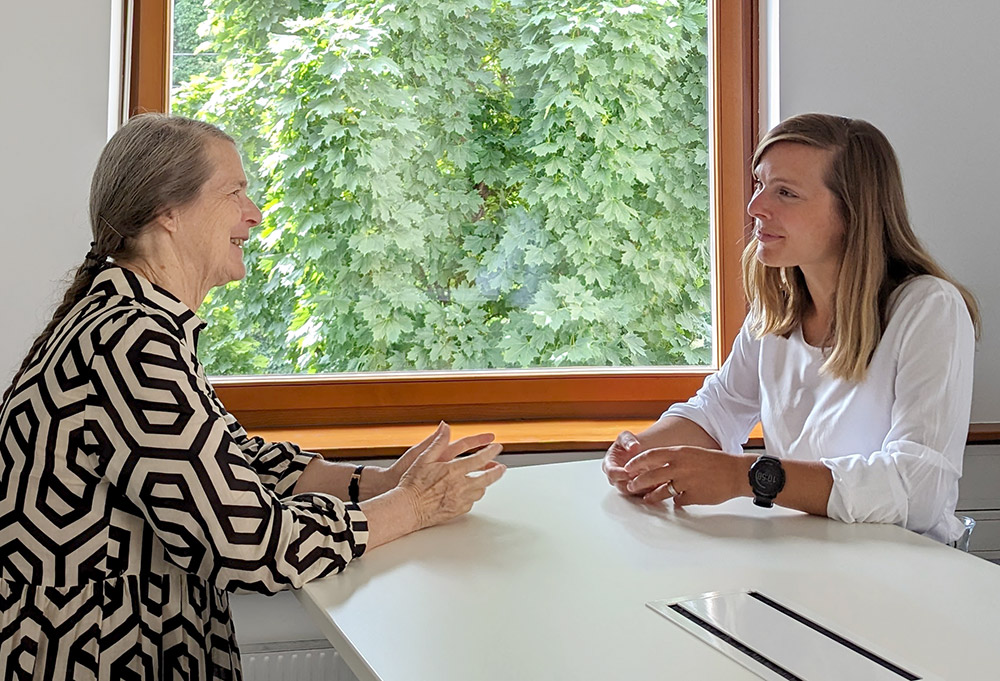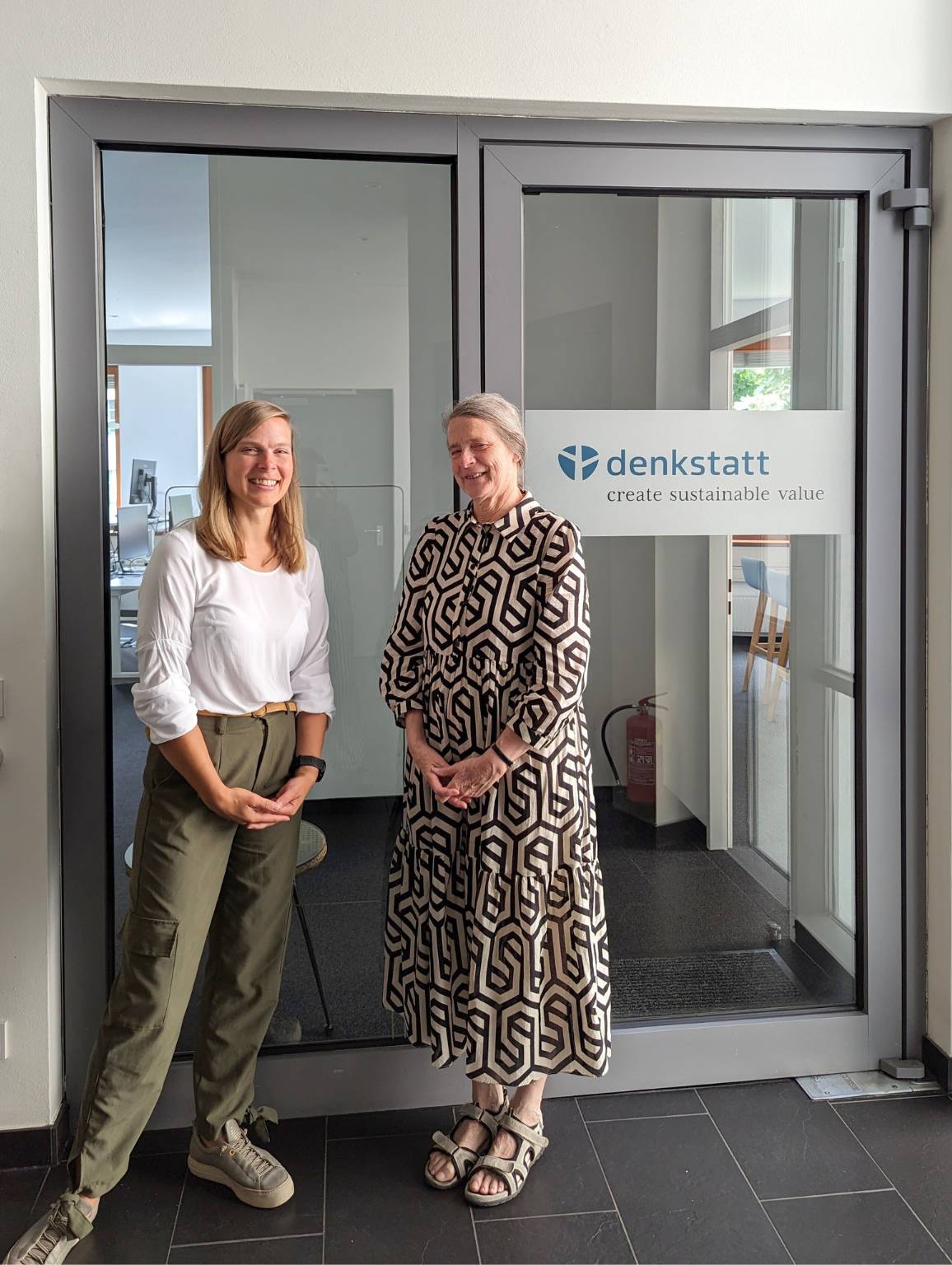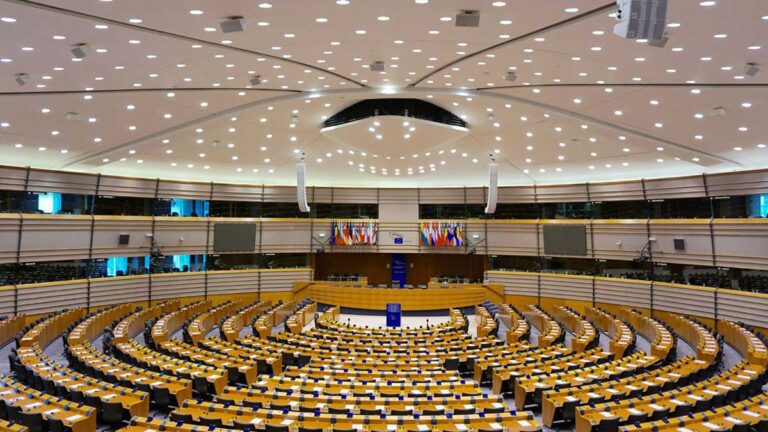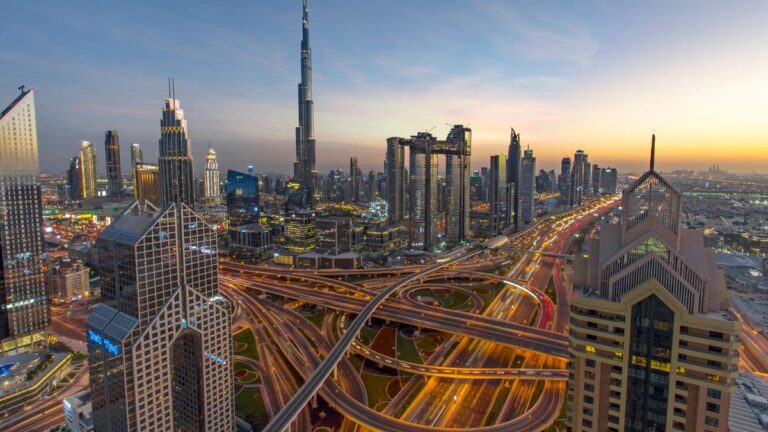
CSRD implementation and Environmental Management Systems (EMS) in accordance with ISO 14001/EMAS
By Merima Crnica and Matthias Kolck The Corporate Sustainability Reporting Directive (CSRD) not only specifies far more content for sustainability
Helga Kromp-Kolb is probably Austria’s best-known and most committed climate scientist. She has been researching and speaking about climate change for more than 50 years. In the course of her career, she has filled many different roles, served on numerous advisory boards and advised decision-makers. In this interview, she has clear words about current developments and points out where she sees synergies between consulting and science. In addition, she gives lots of tips which everyone can implement and result in an increased quality of life.
Picture: Mitja Kobal
Marijke Janz: Welcome to denkstatt. You have been working tirelessly for decades, talking to many people, including decision-makers. How do you assess the current situation around climate change?
Helga Kromp-Kolb: Recently, a publication by Danish research colleagues at the University of Copenhagen on ocean circulation was published Until now, a collapse of the Atlantic Meridional Overturning Circulation in the 21st century was considered unlikely, but the new results from Denmark show that the tipping point could be reached much earlier – namely as early as 2025. Currently, this ocean current is responsible for the warm and mild climate in Europe. If it fails or does not reach as far north, it has serious and irreversible consequences for temperature and precipitation patterns far beyond Europe. In Europe, this would cause temperatures to drop dramatically within a few years and precipitation to decrease while increasing the likelihood of violent winds. Sea levels on the U.S. East Coast could rise significantly. Previous research, based on different data sets and methodologies, has already found evidence of slowing ocean currents. So, the new results should be taken very seriously. Perhaps this is now the news that will lead to action finally being taken.
Internationally, there are individual countries that have taken quite serious measures and are reducing their own emissions. But overall, far too little is happening, and far too slowly. Globally, greenhouse gas emissions are still rising. Austria is clearly one of the laggards, especially when measured against what Austria should and could actually do.
What would be the important levers, then, and do you feel that the urgency has already gotten there?
Politics is definitely called upon here. But the question is whether some of the politicians in power have any interest at all in finding a solution. Climate protection is obviously not important enough for them compared to other interests that are in the foreground, such as the next elections. If we look at politics and its issues, we see a lot of populism, and you can’t solve long-term problems with populism.
The climate activists are right in that pressure must be generated on the streets. The question is how exactly that should happen. Actually, we need to raise awareness among even broader sections of the population that, on the one hand, each and every one of us will be affected by the impacts of climate change, but that, on the other hand, the quality of life of all of us could improve significantly if climate protection is pursued seriously and sensibly. Better health, less environmental noise or more safety on the road – all this and more could contribute significantly to our quality of life. I believe that this has not yet reached most people. Instead, society hears, “Climate protection will take away your car and your schnitzel.” This narrative is quite common, even in politics, and it does not create a willingness to change.
That means we are actually talking about rational action here. Now, human beings are not necessarily reasonable by nature and do not act with foresight but are influenced by other aspects in their decision-making. But there are indeed people who have initiated a lifestyle change for themselves and have recognized all these advantages for themselves. What makes the difference here?
Our brain is primarily geared to recognizing immediate dangers and opportunities – in evolutionary terms, a necessity for survival. However, due to technological progress that enables us to destroy our livelihoods in the medium to long term, this is no longer enough. To reach the general population, the real issue now is that change must be simple and attractive to people. The majority of society does not want to constantly make choices for products or services that cost more, are more inconvenient, and are out of the ordinary. I can very much relate to that. It takes a tremendous amount of mental effort to go against the mainstream of consumerism and stinginess. After all, we’ve been told for decades that this is important and the way to go.
The other day, a well-known competitive skier said in a discussion that he wished he could go to the supermarket and be sure that he would find only climate-friendly and sustainable products there. And that’s what it’s all about. It has to be easy, convenient and cheap for people. I am convinced that this is possible. It can be done in part through financial interventions or through prices. But it also has to be done via bans and commandments. I see no reason why this cannot be implemented. It depends above all on the will of the politicians and on convincing arguments to the voters.
So, is it a matter of reducing this great complexity in decision-making for sustainability?
Perhaps in a certain way. On the one hand, there needs to be appropriate evidence that something is sustainable. On the other hand, some things simply shouldn’t be there at all. Electrical appliances with efficiency class B, C, and more – what’s the point of having them in stores anymore? I also don’t think anyone really needs ten different types of yogurts. For me, an oversupply, for example with twenty different types of chocolate, has nothing to do with sustainability. This is true even if the company behind it is actually very sustainably oriented. But if we really want to live sustainably, we will need sufficiency. Which, by the way, is what the same chocolate company is communicating: Don’t eat much of our chocolate but enjoy every bite.
Behind all this is the question: What is worth something to me? This doesn’t refer to price, but to real values such as friendship and family, feeling included and supported, empathizing, being healthy, and so on. That’s why it’s important that as many people as possible change their thinking. We are influenced quite strongly by our environment. Example: If everyone around me has already been to Vietnam, Cuba or the South Pole, then I have to go there on vacation, too. And that’s despite the fact that I might not be interested in the country at all. I would probably feel much more comfortable somewhere in Austria by a lake. But if everyone else has already been to Vietnam, then I must have been there too. We can no longer afford this artificially fueled wanderlust. We will never get away from the fact that the environment influences us. That’s why the environment has to become more sustainable.
This means that we are facing a major social change in which many individuals must participate. How can this now be supported and succeed?
There is a great example in Austria, namely the Climate Council of Citizens. This is a group of about ninety people who represent our population by virtue of their backgrounds, interests, professions, and so on. Before that, most of these people had nothing to do with the topic of climate or sustainability. After only six weekends of information and discussion, they came up with about a hundred good policy proposals, almost all of which were unanimously agreed upon. Among them are measures such as the adoption of a climate protection law, carbon (CO2) prices for more true costs or a climate-friendly approach to food. This clearly shows that it is possible to get the Austrian population engaged with climate protection. You have to inform people, talk to them and invite them to think and participate.
Subsequently, however, they must also be taken seriously from the political side. Unfortunately, the latter did not happen in this fine example, as one of the governing parties has not yet responded to the proposals. I regard that as a sign of an extremely questionable understanding of democracy. Nonetheless, I am very confident that the population could be won over fairly quickly if one tried.
Who do we need for this? Is it only the politicians, who are also elected by the population?
Yes, that’s a chicken-and-egg problem, of course. But we shouldn’t let the media off the hook either, and there’s still a lot of potential there, I’d say. The media landscape confronts us with roller coasters. We see good reporting on the climate and next to the article is the ad for a cheap flight to London for a weekend. That doesn’t go together. More media responsibility is needed here.
Besides the media, we also have to look at the entire education system. The universities, too, are by no means designed as they should be. At least there is more movement at the universities now, even if there is tremendous inertia. Unfortunately, very little is happening in the school education system. We are still teaching here as we did a hundred years ago. Of course, people talk about sustainability and emphasize its importance. But it’s not primarily about whether students can list where the temperature will change and how, or how many species have already gone extinct. Young people need to acquire the skills to think systemically, make their own judgments and find creative solutions. This needs to be encouraged and to do that, we need to teach them differently. In addition, we need to show them what they can do now as children or young people.
I think that Greta Thunberg has really done a great job in this context with Fridays for Future, probably without intending to. But for democracy, this is an incredibly important process that has been set in motion. It empowers youth to do something. They can show that they want something, that they have concerns, desires and goals, and have a voice to address all of that to politicians. Completely independent of the climate issue, I would think it is crucial that politics responds to these wishes and demands. That would help strengthen democracy. Robert Menasse recently said, “There can be no democracy of idiots,” and that’s what this is all about. Taking up and nurturing these tender shoots of a living democracy – we still have a lot to do there.

Despite the prevailing stagnation, there are important changes, as the Fridays for Future movement shows. If we now look back in the direction of the last 3 decades: What else has changed in your view?
One thing has definitely changed: I don’t think there is anyone in Austria who hasn’t heard of climate change. I also believe that the majority of the population thinks that something has to be done. But I think that only the smaller part has really understood that it’s not just a matter of it getting a little warmer and that we can’t go on as we are. Nor that we are either running into a catastrophe, and possibly very soon, as I said at the beginning, or that we can take our fate into our own hands and shape the future. In this way, we could really give our youth a good future. And even a better one than the life we live now. Increasing quality of life with decreasing standard of living. We have to achieve this change in thinking – away from the familiar concept of standard of living and toward quality of life. In terms of general understanding, we are still at the very beginning.
I am aware that quality of life is something very individual. But I don’t think it’s so individual that you can’t agree on it at the national or European level. To a certain extent, this has been tried with the UN Sustainable Development Goals. The Sustainable Development Goals have more to do with quality of life than with standard of living. They also only work if we pursue all 17 equally. Unfortunately, recent reports show that we are moving away from them instead of toward them. But at least we have a shared, global vision, and that’s already more than there has been in the past.
The title of your new book is “Für Pessimismus ist es zu spät – Wir sind Teil der Lösung”, meaning “It’s too late for pessimism – We are part of the solution”. How can we prevent pessimism?
Pessimism must not be allowed to set in at all. Because pessimism paralyzes. An attitude along the lines of, “It doesn’t matter anyway. Then I can still enjoy life now.” does not help us. Closing our ears or falling into depression, as is already the case with far too many young people, should also not happen in the first place. The good news is that you can stop pessimism by looking at your own options, and two aspects are crucial here.
First, and serious literature shows this clearly: Even if you think a catastrophe is inevitable, you can shape it by taking precautions. And this is again about the question of what is really valuable to me in life. If you prepare yourself to preserve what actually means something to you, such as family or friendships, and invest your energy in stable bonds, then a lot is accomplished.
Secondly, what can I part with right now? As a society, we should divest ourselves of nuclear power plants, for example, because they are a danger in crises. We will have to part with coastal cities because the sea level will rise. Transferred to the private sphere, I can ask myself what used to work with little effort. Without electricity, but with muscle power. For example, the bicycle, the ladder truck, the can opener or the toothbrush. Also, a book or a candle to spend a cozy evening. It may be that we will need all of this again.
Incidentally, these are all exactly the same measures that we would have to take in order to achieve climate protection. That’s the beautiful and interesting thing about it. It’s all about sufficiency. Many very small steps help us to understand the principle of sufficiency and to internalize that it means an increase in quality of life. As long as politics neither aligns its decisions with the common good nor addresses the problems at their core, we need the individual level to signal that we as a society want change. Both in the economy and in politics.
Now we’ve talked a lot about the private sphere and lifestyle. On the job, people are involved in a completely different context and system. What would you say: What role can and must people play here?
People can do a lot in their professional environment. It depends a little on where they are in the hierarchy. But voicing ideas, asking questions, offering constructive criticism… that’s possible for all employees. Those who belong to the decision-making level themselves can, of course, do much more. There are wonderful examples, such as this one from the USA: The owner of a small design company wanted to reduce greenhouse gas emissions in his business and say goodbye to fossil fuels. He started the project with good intentions and decided to install a photovoltaic system. However, the roof area was not enough to meet the energy demand. He was about to give up when someone advised him to save energy first, and then convert. He gathered his entire staff, clearly formulated the goal of “getting away from fossil fuels” and created a common motto: We must not fail. Within 15 months, he used the motto to save two-thirds of the energy, e.g. by optimizing travel routes, energy-saving office equipment, and giving employees more room for their decisions. In the end, the roof space was easily enough. Not only has it saved energy and money, but the company has also become more productive and gained more customers. Employee satisfaction improved throughout the process, and that in turn translated to customers. The chain reactions extended into the supply chain. Such examples show wonderfully that you can do a lot as a business operator. There are so many synergies that we may not even be aware of at first.
Of course, bad decisions also happen. But I think that’s also important to recognize. We need to be allowed to experiment more and establish a new error culture. There are many paths and possibilities open to us. That means we have to be allowed to try things out, and mistakes are part of the learning process. By the way, this is also an issue in education and politics. If someone is constantly afraid of making a mistake, then we won’t get anywhere. Discussing ideas with people, working out solutions and then simply giving it a try – we need more of that.
Now we encounter many different companies in our sustainability consulting work. Some are already further advanced in the transition. Others have individual sustainability officers or ESG managers who are highly motivated but keep running into walls. What arguments and actions are convincing from your experience and what would you advise these people to do?
Good examples have the best effect and are the most convincing. For example, you can visit another company with your management that has already successfully embarked on the path and let the results speak for themselves. I also believe that it would be helpful to bring the sustainability officers of different companies closer together so that they can learn from each other. Exchange is essential here: What did I succeed or fail at? What was difficult? Where did we make mistakes that you can avoid? Which arguments worked? That would be incredibly important. In the same way, I think it’s important for there to be a club of administrator officers. Maybe even for different levels. Then the ministries would actually talk to each other and ideally pull together – initiated at an informal level.
We need to create meeting spaces where people can exchange ideas and share information. I think that’s incredibly effective. The Alliance of Sustainable Universities, which we founded many years ago, works according to this principle. It’s a body of experts made up of people interested in sustainability from many universities. In this exchange, we hear from each other what the individual universities are already doing, what is working and what is not working. This information makes it easier for everyone. The argument, “If we don’t move fast now, the others will pass us by.” always works, amazingly enough. In the end, the management is often not so much about doing it, but about being first.
Is sustainability then once again a question of competition?
If competition is an incentive for a good cause, then so be it. But I’m not in favor of promoting competition in general. I think we already have too much competition in this world. In recent decades, it has been preached over and over again that competition spurs innovation and that competition is the mother of progress, but I don’t believe that.
What then drives us to progress?
I believe progress comes from creativity, and that is very much stimulated by working together. By recognizing and solving problems. In the IT sector, in particular, we produce solutions for problems that don’t yet exist. I think that is absurd. We have so many serious problems in the world that have not been solved. Let’s devote ourselves to them instead of developing a tool and then thinking about where we can apply it. Otherwise, we will have to talk people into the problem instead of solving the real challenges of our time. This is going in the wrong direction, and I would like to see companies realize that they can play a different role here.
Sustainability consulting also plays a role in such change processes in companies. At denkstatt, we work science-based and according to clear principles. How do you assess the role of sustainability consulting and what expectations do you have of consulting companies?

The strength of a sustainability consultancy, like denkstatt, is that it is very close to practice and works on actual problems, whereas science is often too far away. The disadvantage is that the consultancy cannot always muster the strength to demand what is necessary and must therefore settle for less. After all, it has to hold its own financially, as it also has a responsibility for its own employees. This is a difficult role that we also know from science, for example, when research funds or research contracts come from industry. Maintaining independence is definitely challenging here, and a consulting company has to perform a similar balancing act. This is difficult to solve, but one should be aware of this dynamic.
Another point is the quality of consulting. In a large consulting firm like denkstatt, one can assume that quality assurance measures are in place. However, sustainability consulting can be offered by just about anyone, and in my opinion, there is too little control. Unfortunately, I have also seen consulting results like carbon footprint calculations from other companies that are simply wrong. I am also skeptical about consulting directly from academia. In any case, people who advise companies on sustainability issues should be aware of the responsibility that comes with it.
How can consulting companies overcome potential conflicts of interest and at the same time ensure the quality of consulting? What can we learn from science here and where do you see points of contact?
Transparency and accountability are important keywords. If consulting results are shared publicly, they are verifiable. If it turns out that the methodology or the parameters are no longer in line with the state of the art, or that the work was not done properly, the consultants would have to take responsibility for wrong decisions. Of course, this is difficult to handle in practice. What we really need are interdisciplinary committees or advisory boards that work independently and check whether solutions from the consultancy stand up to the latest scientific findings. This could also be institutionalized by having consulting firms present their consulting results at a regular event and having them discussed constructively by colleagues and scientists. It would be important to create a benevolent atmosphere in which criticism is explicitly welcome. This brings us back to the topic of learning and error culture.
Such a format would also have the great advantage that science would receive more information about where the real problems lie. Currently, research is done where it is interesting at the moment, where it is easy to publish something or where there is money. The fields of research may not coincide with the real problems. I see great potential here for the future, and consulting companies can make important contributions.
This brings me to another point: The importance of consulting firms’ contributions is currently still underestimated. The ideas and much-needed solutions often come from practice and not from theory. Scientific methods and valid tools are important. We also need theory downstream to underpin practical results and make them generalizable. But if science does not perceive the problems, it cannot work on them and contribute. Then the scientific discourse is missing because only published results are discussed scientifically. In this respect, sustainability consulting holds an immense treasure that is not yet available to science. This treasure would have to be worked on, e.g. in the form of theses. It could be examined how solutions can be generalized and made usable for others. Here, consulting and science would have to move much closer together in the future.
Let’s stay with the future right now. Now the news on the Atlantic meridional overturning circulation has pretty much hit home and underlines the urgency. What do you think are the important levers now, in the short and medium term? What do we need to do and what is realistic?
We all really need to reduce emissions drastically now. I don’t think we have the time anymore to focus only on the important levers. We now have to use all the available levers, and fortunately, there is not just one person holding the levers. The levers are very broadly spread and I think we have to move them at all levels and in all areas. The proposals and measures are all on the table. E-fuels, nuclear energy and other bogus solutions are simply outdated. We don’t need to discuss that anymore. We have to press the emergency button now and need all the sustainable contributions that will help us reduce emissions.
Now there are those people who are very committed and have understood the problem. For many, however, the inertia of the system is difficult to endure. Some, especially younger people, may even have a dystopian vision of life in the future. What advice can you give to these people?
The future can always be shaped. On a small scale, everyone can shape it for themselves, but the big path results from the social will. When many individuals pull in a certain direction, it changes the entire path. It’s the same with elections. Although the individual vote means little, the election result comes from the sum of the individual votes. We must also not forget that there are also tipping points in the social sphere which, once a society has agreed on something and is pulling together, can have an effect of their own accord.
There are many good examples of how people can make a huge difference and set things in motion. Gandhi started as an individual and ultimately freed India from colonial rule. Such movements are a huge undertaking and don’t happen overnight. But we are no longer at the beginning of the climate movement either. We can all contribute to this movement in our own sphere of influence. You can go to demonstrations or write letters to newspapers or politicians. From my point of view, the whole spectrum of political activism is in demand. We can also get involved and make decisions at work. There are two tasks here that require a balancing act. On the one hand, we have to implement as much as possible within the system in the direction of sustainability. On the other hand, we must work to change the system and its framework conditions so that much more becomes possible. Both must be pursued at the same time.
One more thing is important to me in this context, and I learned this late: If someone does something good, they may counteract it with what they don’t stop doing. If I, as a retail chain, do a lot for sustainability and then promote and sell patio heaters, that’s counterproductive and shouldn’t happen – even at a discounter. Good contributions are not enough. Above all, we have to cut out the bad. And that’s another area where everyone can contribute and exemplify the change themselves. Because demanding change without changing oneself is untrustworthy. All of this applies to individuals, companies, and ultimately also to states. Austria must do what is possible, and at the same time contribute to the EU moving or even global movements emerging.
If you think about it, it becomes clear that a lot is possible. You can ask yourself where there is still potential to leave out the bad, where you can contribute to the good and get involved. I can only encourage every person to discover their own fields of action and to join forces with others, in private and at work. There we are again with the levers that we can all operate.
Thank you very much for the interview.
Thank you too.

By Merima Crnica and Matthias Kolck The Corporate Sustainability Reporting Directive (CSRD) not only specifies far more content for sustainability

Eventually, an agreement was reached between the Council and the European Parliament on the provisional terms of the CSDDD. The

From 30 November until 12 December, the COP28 took place in Dubai, with more people taking part than ever. Although many
